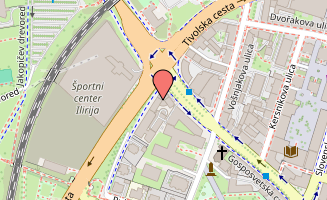25/11/2022
Energy Savings Guide
This CMS Guide is designed to shine a light on the wide variety of energy saving laws in selected CEE countries by explaining the most important legal measures and helping you to discover where your opportunities might lie. Political and legal framework Energy transformation requires building up new energy sources and that takes time. Saving energy, however, is the quickest and cheapest way to address the current energy crisis, which is mainly caused by Russia’s invasion of Ukraine. Reducing energy consumption cuts households’ and companies’ high energy bills. Building on the “Fit for 55” package of proposals and completing the actions on energy security of supply and storage, the European Commission’s REPowerEU plan put forward a set of five actions, the first of which is energy saving. Union law sets forth mandatory saving goals for Member States but leaves them plenty of leeway to choose between a variety of measures. Applicant countries and many others have passed energy savings laws and targets too – offering additional flexibility. As a framework, the Fit for 55 package and the European Climate Law (REG 2021/1119) sets out a binding, irreversible reduction of anthropogenic emissions. By 2030, 55% of the net GHG (greenhouse gas) emissions compared to 1990 must be saved. By 2050, the mandatory net zero emission goal must be achieved. Regulation 2022/1032 requires that member states fill their gas storage facilities to at least 80-90% or that they store at least 35% of their average annual consumption in European storage facilities. Reducing consumption over the years reduces the filling obligation. Since August 2022, obligatory reductions in gas consumption apply to EU member states (Regulation 2022/1032). The core innovation of this regime is the Union alarm that can be triggered by the European Council if there is a material risk of grave gas supply shortages, extraordinary gas demand or a national alarm pursuant to Directive 2017/1938 in at least five Member States. Once a Union alarm has been triggered and for as long as it remains in force, member states must reduce their gas consumption by 15%. There is a partial exception if this would otherwise cause an electricity crisis in the respective member state. However, the steering measures to be taken and whether certain groups of gas consumers are granted more favourable conditions remain at the member state’s discretion. Regarding electricity, Regulation 2022/1854 on an emergency intervention to address high energy prices aims to reduce electricity consumption by 10% and ease the pressure on electricity prices through revenue caps. Again, Member States are free to choose the appropriate measures to reduce gross electricity consumption and meet the 10% target. Additional rules apply to the fuel consumption of trucks or the energy consumption of district heating/cooling. The CMS Guide
The result of these regulations concerning energy saving has been the introduction of a wide variety of energy saving laws in individual states; and many more measures are still to come. This CMS Guide is designed to shine a light on these regulations by explaining the most important legal measures and helping you to discover where your opportunities might lie. For each jurisdiction, the guide is structured into:
(1) a country overview,
(2) national relief measures for high energy prices,
(3) national/regional/communal energy savings measures, and
(4) energy storage status and incentives. The following measures have been chosen by the states represented in this guide:
subsidies to end-consumers (Austria in general for energy prices; Croatia for gas consumption), price caps: electricity (Croatia for households, undertakings and certainpublic consumers; Ukraine for households),reduced VAT rate (Croatia, North Macedonia), tax incentives to privately store gas (Ukraine); exemption from steering measures for privately storing gas (Austria),subsidies to compensate for high energy prices (Bulgaria and Slovakia, in Slovenia for enterprises, in Türkiye for agriculture) and energy saving measures: (Croatia for SMEs); the reallocation of EU funds to support energy consumers (Slovakia); subsidies for energy storage solutions (Austria, Bulgaria and Ukraine) or for heat producers (Ukraine),energy efficiency measures incl. digitalisation (Bulgaria),reduced hours of electricity or heating supply (North Macedonia) or of gas supply (Slovakia),reduction of energy consumption by the public administration (Austria, North Macedonia, Slovenia), andobligations on gas storage operators to feed gas into the grid (Austria, Slovakia) or to supply heat producers at preferential prices (Ukraine). rewards for voluntary reduction of gas and/or electric energy consumption (Slovenia)educed permitting requirements for PV and wind plants (Türkiye).




_840x420.jpg?v=3)



%20(2).jpg?v=2)

%20(4)%20(2).jpg?v=2)







%20(2).jpg?v=3)




Social Media cookies collect information about you sharing information from our website via social media tools, or analytics to understand your browsing between social media tools or our Social Media campaigns and our own websites. We do this to optimise the mix of channels to provide you with our content. Details concerning the tools in use are in our privacy policy.